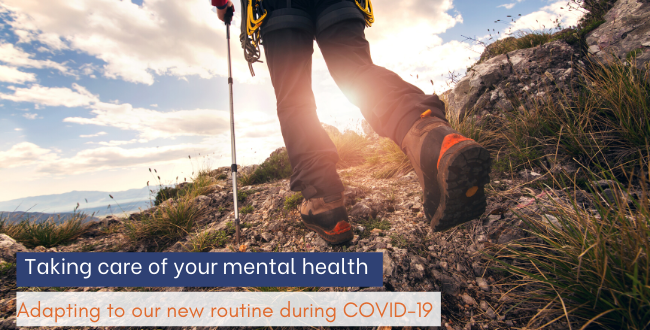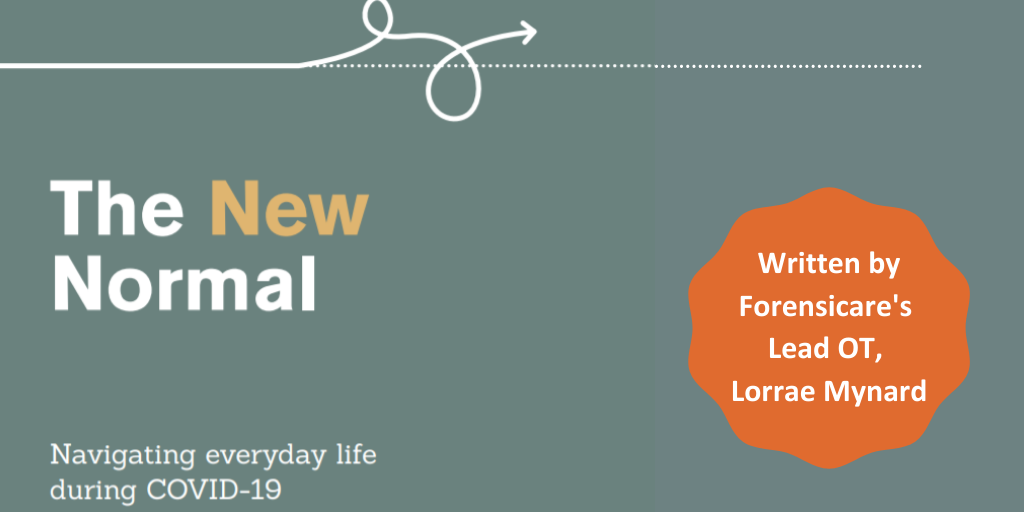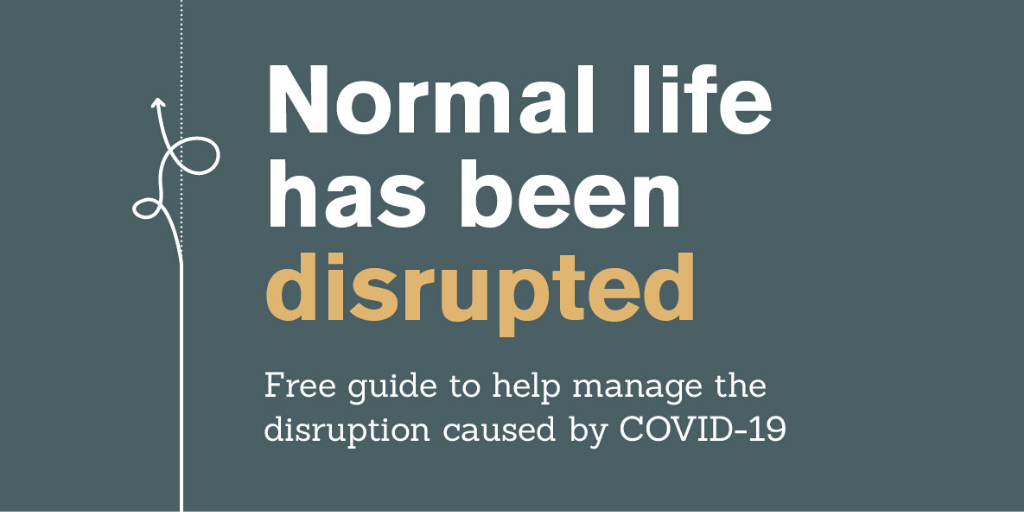Adapting to our new routine: COVID-19
You might be relatively new to the whole working from home and self-isolating thing—or by now, you might be a few weeks in. Either way, Stage 3 restrictions means we’re pretty much only leaving the house for work, groceries, medical attention or a quick bit of exercise.
For many of us, our homes have become where we work, play, relax, reflect, socialise, connect and isolate. All of a sudden, parents working from home are trying to take work calls while attending to a toddler who’s desperate to show us their new Lego creation. We’re hearing our work emails ping while trying to work out in the living room. Or, if we’re stuck at home with no work, we’re waking up to Groundhog day—with the latest shows on Netflix as our main excitement for the day.
This can make home confusing, overwhelming, or boring. We lack the structure and routine we used to have in place in the outside world, with many of us finding we’re losing track of what day it is.
Because of all this, it might not feel like there’s a clear start and end to the week.
Weeks might start to feel like a string of days that run together—and it’s especially daunting to know this is only the start of our isolation marathon.
When structure and routine vanish suddenly because of something outside our control, it can feel like having the rug pulled from under you.
What is routine, and why is it important?
Routine is a sequence of actions that are regularly followed, and having a solid routine is often linked with success. Ernest Hemmingway, Benjamin Franklin, and Elon Musk are a few well-known individuals with well-documented routines.
But a routine isn’t only about success—it’s about maintaining your mental health and well-being. Structure and routine provide us with an ability to be efficient, decrease stress, and find meaning: all of which help our psychological wellbeing,
Routines can anchor us.
Think back to when you were at school. You knew you had two periods before recess, another two before lunch and another two before going home. Having things occur at predictable times can help manage periods of uncertainty, or help you prepare for something difficult. They also help us with time management, which is likely to lead to greater feelings of accomplishment and satisfaction.
When unpredictability renders us immobilised on where to start each day, or what to do next, having a routine can help us move seamlessly through each day.
But it can be hard to establish a routine when we’re isolating—so here’s some tips to help you find your own routine during these crazy times. And it’s okay: anything goes.
Establish a ‘routine’ that works for you
Most of us are used to the 8-hour work day. But working away from your normal workplace can provide an opportunity to find out what works for you.
If you’re juggling multiple roles at the moment, consider “chunking” your time, breaking it up into small pieces that can feel more manageable. You might decide an earlier start helps you focus on getting a few things done before the chaos of the day begins (e.g. like your toddler waking up). Or, you might find that a few hours after the kids go to bed is when you’re at your best. If you’re by yourself, it might be helpful to maintain your usual working hours, as it feels more normal, and can feel comforting to know that others are also busy working at that time.
Experiment with whatever works best for you, set it in place, and repeat.
Either way, be strict with your boundaries. When the end of your work day comes, turn off your work phone, exit out of your work email, and if you can, change computer profiles or turn off the work computer.
And if you’re self-isolating, and can’t do your usual work from home, establish a routine that includes basic self-care—like getting up at a regular time, showering, changing clothes and doing exercise. Have virtual social contact with your loved ones, and think of productive or inspiring activities. Sure, set out some time for doing things you enjoy, like watching TV or gaming, but book-end it with consistent meal times, or a planned 2pm virtual yoga class
Build in time to read a journal article, or half an hour to do something creative.
Even if there’s only one thing on your daily routine, ticking this off every day will give you a sense of accomplishment, and help protect your well-being and resilience for the days, weeks and months ahead.
‘Transition’ between times of day and your roles
Lately, many of us have encountered role conflict. And it’s true: it can be hard to go from completing a work task, to playing with slime, to speaking to a client, to home-schooling, to chatting with your partner, checking in with a loved one, and then back to self-care, all in the space of a few hours. It’s been like juggling hot potatoes.
Psychologist and peak performance researcher Dr Adam Frasier talks about the “third space”, which is what we do between a first activity, and a second activity that follows it. He proposes that it’s not all about what we do, but what we do in between each “thing” that dictates our performance and success. The “third space” allows us to shift mindset, emotion, and energy to better fit the next activity—which is great for those of us who feel like that space is missing when we work from home.
Give some thought to how you might “transition” in and out of your work day, even if you’re only able to chunk your hours for a few time.
You could try Dr Fraser’s three Rs to do this: Reflect, Rest and Reset—even if you’re only able to turn your mind to each step for only a moment.
It might be a walk around the block that breaks up writing a report with looking after kids, or changing in and out of work clothes that reminds us of the role we’re occupying at any given time, which helps us to mentally show up for what’s coming next.
If you can, add an environmental element to the transition. Can you ensure you only work in one spot in your house, and not go there unless you’re in your work hours? Can you pack up your books or the laptop so it’s off your dining table when you finish? Can you keep your bedroom free of any work-related content or discussion?
These steps will help establish work-time from family or down-time.
Build in something to look forward to each day.
There’s a lot of information flying around about finding opportunity amongst this crisis. The struggle is real, with many of us feeling anxious, overwhelmed and daunted with this uncertainty. But amongst these emotions are real tales of joy, opportunity, and genuine happiness.
Think of the small things that brighten your day. You might have completed a task you hadn’t been able to before this crisis. You might have met your neighbour, and had felt genuine warmth or connection or concern from people you mightn’t have otherwise spoken to. You might have seen your child ride a bike for the first time.
Whatever the opportunity, look for ways to make more of these each day. And remember to treat yourself! Once a week, open up a nice bottle of wine, set the table for a cosy meal, or do a popcorn, movies and pjs night Find something to celebrate at home and dress for the occasion!
And remember: all those occasions we were looking forward to? Most of them can be moved online—or re-scheduled for the future.
The 30th birthday party, the gig for our favourite band, drinks after work, weekly yoga classes can be moved online. Yes, we know it’s not the same—but it’s often better than missing out all together. Play a board game online or host a trivia night over video. Facetime your friends and dance to the same playlist, tune into online workshops and concerts from musicians online. You can even share a glass of wine over Zoom.
Things might have changed, but we can still enjoy a lot of experiences—we just have to be a bit more creative about how we can engage with them.
Practice radical self-acceptance
In isolation, we have good days, and we have bad days.
There are days when we feel peaceful and like everything’s gone our waythen there are days where we feel unproductive, flustered, and even scared.
It’s important to remember we are trying to continue to live life, all under the umbrella of fear, anxiety, and unprecedented uncertainty. Things are bound to slip, and maybe we might not achieve what we want to, and maybe we aren’t our best selves—and that’s okay.
When you feel less than satisfied, remember to take the time to reflect without judgement or criticism, and practice self-compassion—and then review your routine to see whether it’s working for you. It’s okay to have a bad day.
Establishing a new routine can take time.
We are creatures of habit—and while that might have brought comfort in the past, everything has changed; and this is an enormous challenging we’re all facing.
But we’re also creatures who can adapt. We are amazing beings with unlimited potential to face and embrace change, overcome hardship and deal with adversity.
We’ve faced everything life has thrown at us so far, and we will face this too.
We’ve got this.
Lifeline: 13 14 11
Carers Australia: 1800 242 636
Kids Help Line: 1800 55 1800
This story was brought to you by the Thomas Embling Hospital Reflective Practice team, which helps our staff with their own mental health and well-being while provide care for our consumers.
This piece was written in collaboration with Principal Psychologist Dr Meera Aurora, Senior Psychologist Dr Diana Talevski, Senior Psychologist Dr Bonnie Albrecht and the Forensicare communications team.









